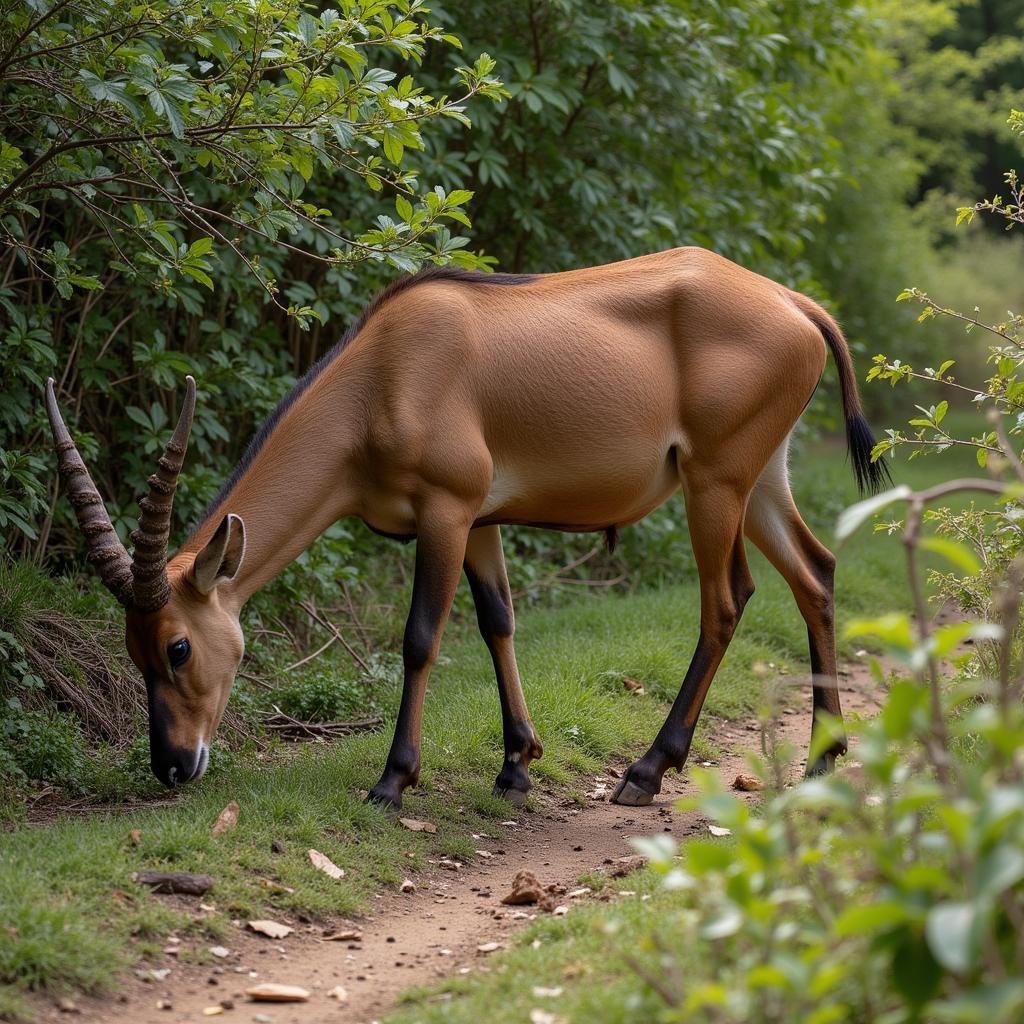Majestic African Bull Elephant Facts: A Deep Dive
African bull elephants are iconic symbols of power and wisdom, roaming the savannas and forests of Africa. These magnificent creatures play a crucial role in their ecosystems, shaping landscapes and influencing the lives of countless other species. Let’s delve into the fascinating world of African bull elephants and uncover some remarkable facts about these gentle giants.
The African bull elephant, the largest land mammal on Earth, commands attention with its sheer size and presence. Distinguishing them from their Asian counterparts, African elephants boast larger ears shaped like the African continent, a concave back, and tusks present in both males and females. But what truly sets the bull apart? Beyond their impressive tusks, bull elephants exhibit unique behaviors and characteristics that contribute to their vital role in elephant society. See our article on African and Asian elephants facts for a comparison.
Unveiling the Physical Prowess of the African Bull Elephant
A mature African bull elephant can reach a staggering height of 10-13 feet at the shoulder and weigh up to 6 tons. Their massive tusks, made of ivory, can grow over 10 feet long and weigh over 200 pounds each, serving as tools for digging, foraging, and defense. These impressive tusks, unfortunately, have also made them targets for poaching, highlighting the urgent need for conservation efforts. For more information about endangered species, visit our page dedicated to the African endangered species list.
How Big Do African Bull Elephants Get?
African bull elephants can reach up to 13 feet tall and weigh up to 6 tons, making them the largest land animals on earth.
The Social Dynamics of Bull Elephants
While female elephants live in close-knit family groups led by a matriarch, bull elephants lead a more solitary life. They often form loose bachelor herds with other males, engaging in playful sparring and establishing social hierarchies. As they mature, bull elephants become increasingly independent, seeking out breeding opportunities with female herds.
Do Bull Elephants Live Alone?
While young bulls may live in bachelor herds, mature bull elephants often live alone or in small groups. They only join female herds to breed.
The Importance of Bull Elephants in the Ecosystem
African bull elephants play a crucial role in shaping their environment. Their foraging habits, including uprooting trees and digging for water, create vital habitats for other animals. Their dung disperses seeds across vast distances, contributing to the biodiversity of the African savanna. You can find more information about African wildlife on our African birds and animals page.
What is the Role of the Bull Elephant in the Ecosystem?
Bull elephants are keystone species, meaning their presence significantly impacts the entire ecosystem. Their foraging creates habitats for other animals, and their dung disperses seeds.
Threats and Conservation Efforts
Sadly, African bull elephants face numerous threats, including habitat loss, human-wildlife conflict, and poaching for their ivory tusks. To protect these magnificent creatures, conservation efforts focus on anti-poaching patrols, habitat preservation, and community engagement. You can see more stunning images of African elephants on our African elephant pics page.
Learn more about impressive tusks on our page dedicated to the African elephant longest tusk.
Why are African Bull Elephants Endangered?
Habitat loss, human-wildlife conflict, and poaching for their ivory are the primary reasons African bull elephants are endangered.
Conclusion: Protecting the Giants of Africa
African bull elephants are magnificent creatures that play a vital role in the African ecosystem. Understanding their biology, behavior, and the threats they face is crucial for their continued survival. We must work together to protect these gentle giants and ensure their future for generations to come.
FAQs
- What is the lifespan of an African bull elephant? African bull elephants can live up to 60-70 years in the wild.
- What do African bull elephants eat? They are herbivores, consuming grasses, leaves, bark, and fruits.
- How can I help protect African bull elephants? Supporting conservation organizations and spreading awareness about their plight are crucial steps.
- How much water does an African bull elephant drink? An adult bull can drink up to 50 gallons of water a day.
- Are African bull elephants aggressive? While generally peaceful, they can become aggressive when threatened or during musth, a period of heightened testosterone.
- How fast can an African bull elephant run? They can reach speeds of up to 25 miles per hour over short distances.
- Do African bull elephants have predators? Adult bulls have few natural predators, but young calves are vulnerable to lions and crocodiles.
Other questions you might have:
- How do elephants communicate?
- What is the social structure of an elephant herd?
- What are the current conservation efforts for African elephants?
You can find more information on these topics and other related articles on our website. Explore our diverse content to learn more about the fascinating world of African wildlife.
When you need assistance, please contact Phone Number: +255768904061, Email: kaka.mag@gmail.com or visit us at Mbarali DC Mawindi, Kangaga, Tanzania. We have a 24/7 customer service team.



